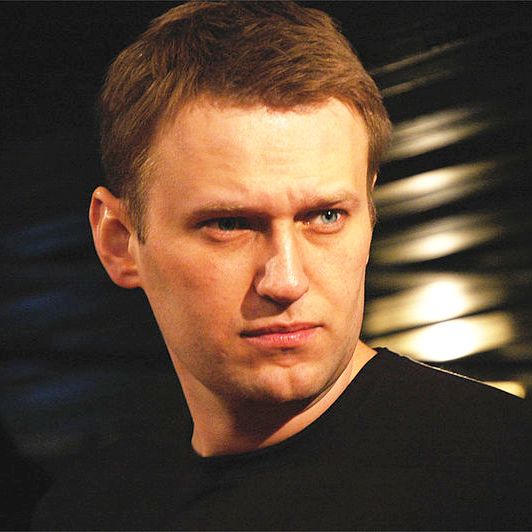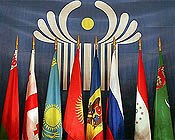(Six Views)
Navalny is not Khodorkovsky. For everyone reading or making comments about today’s verdict like “this is worrisome," you are a decade late to the game. The first major judicial moves against regime opposition in Russia targeted oligarchs and their compatriots during Putin’s first term: Mikhail Gusinsky, the late Boris Berezovsky, and most notoriously, Mikhail Khodorkovsky. The West mostly shrugged about Gusinsky and Berezovsky, but strangely embraced Khodorkovsky as the democrat he never was. The Russian public understood that Khodorkovsky was imprisoned because he didn’t play by Putin’s rules, and his latter day discovery of democracy was perceived as little more than an unconvincing last minute conversion.
After today, Navalny and Khodorkovsky will be mentioned in the same breath as prisoners of Putin’s regime but Navalny is not Khodorkovsky. The scandal of Khodorkovsky’s conviction was not so much that it happened, but that it was a selective application of the law that could easily happen to anyone who made serious money in the 1990s. In Navalny’s case, the scandal is simply that it could happen to anyone outside the regime. Arguably, Navalny’s real crime was that he did not get rich enough to be co-opted by the Kremlin. (More)
Putin was caught off-guard by the mass protests in Russia in late 2011 and for a brief while was uncertain about what the outcome would be. Navalny was one of the key figures spearheading those protests, something that Putin never forgot or forgave. Because Navalny has been the most prominent figure exposing the massive corruption of Putin's regime, he has made many other enemies as well. Hence, the severe punishment handed down today – a verdict determined in the Kremlin, not in Russia's subservient judicial system – is not surprising. Nonetheless, it is a dispiriting reminder of how far Russia has gone back toward authoritarianism. The chilling effect of this sentence on other opposition figures is likely to be significant. Even though protests may reemerge for a while, the barriers to collective protest action are now much greater than they were in December 2011. Putin thus will further tighten his repressive grip.
It is really depressing that prison has become a key institutional component of the Russian political system. Navalny, Ofitserov, Khodorkovsky, Lebedev, the Pussy Riot group – these are the most notorious cases of political imprisonment. A few weeks ago the mayor of the city of Yaroslavl, Evgeniy Urlashov, was arrested –a year ago he ran in municipal elections against the United Russia party and managed (should I say dared?) to win. Yet there are many other, less publicized, cases as well. For example, political science professor Mikhail Savva from Krasnodar was arrested formally under the dubious accusation of financial wrongdoing, but in fact because of his political activity (http://vk.com/mvsavva).
It is telling that people like Zhirinovsky disavow the Kremlin's narrative of Navalny's financial guilt by saying that this verdict is a warning signal to those who stand "against Russia" – but this only rings true if we substitute "Russia" with "Putin."
It is against the background of these serial incarcerations that the logic of the constant introduction of new bans and regulations becomes clear: the regime overtly wishes to make everyone guilty in something. It could be public performances, or professional contacts with foreign colleagues, or whatever. Optimists in this situation may wish to turn their eyes to the late Soviet Union, while pessimists would perhaps look for expertise in the genesis of modern totalitarian dictatorships.
Update (July 19): The release of Alexei Navalny a day after he was detained in the courtroom is indicative of two very consequential characteristics of the ruling regime. First, the power machine ceased to exist as a more or less unified mechanism capable of taking consistent decisions. The power apparatus is progressively fragmenting (but not decomposing, yet). That is why it is inappropriate to ask ourselves why "they" (the authorities) did this instead of that – the principles of rationality are simply inapplicable for analyzing the chaotic moves and gestures of what is supposed to be a "vertical of power." Even if one prefers to deem that the so-called Kremlin plays a versute game with the opposition, the nature and the structure of this game becomes increasingly complicated, which makes outcomes ultimately uncontrollable. It is exactly here that the chances for change could materialize. Second, the Putin team has already, without noticing it, started playing by the symbolic rules of their challengers. It is undeniable that people like Navalny and Ofitserov – along with Pussy Riot – are the key political newsmakers in Russia. The entire structure of Russian political discourse largely depends upon them. By turning his trial in a deeply provincial city of Kirov into a high-profile performance of international scope, Navalny demonstrated his performative skills. One of the effects is the obvious personification of the political process. This is bad news for the Kremlin, United Russia, the Popular Front, the Nashi group, and other faceless political machines. Should Navalny continue his campaign for the mayor of Moscow, he will certainly turn it into a personal story of struggle and resistance. For the far less charismatic Sobianin, this certainly means a serious challenge. A system that faces these challenges is prone to make new mistakes.
On the one hand, this is not news. Few people expected Navalny to stay out of jail and most expected a harsh sentence. On the other hand, this is very bad news. It confirms that the regime has completely discarded the urban middle class as a potential constituency. Intimidation is the only instrument that the authorities are going to use in dealing with any independent movements and leaders. This will further alienate the most active and independent part of society. Future scenarios are scary: it looks like Russia is heading towards a gradual de-modernization under pressure from the reactionary forces, and ultimately, to a more or less violent collapse.
Navalny's conviction should put an end to one common myth about contemporary Russia: namely that even though the state controls television, the internet is free. Navalny is primarily a blogger who was able to use the internet to document corruption among the Russian elite. As more Russians log on to the internet and become skeptical about what they see on television, Navalny's influence was bound to increase. Moreover, he inspired many others and they were starting to take action.
At first the Kremlin did not pay much attention because the internet reached only a small audience. Now this is no longer the case, so the Kremlin had to take control of what is on the internet in the same way that it controls television programming. One way to do that is to arrest the people creating the most compelling content.
Navalny's jailing may not have immediate consequences, but over time it will likely be seen as a turning point. Hopefully, it will mark a moment when it becomes obvious to the broader public that throwing creative people in prison will not lead to economic or spiritual development for Russia. The Russian leadership is fighting a tide that eventually will overwhelm it. Putin's repressions will likely continue, but it is clear already that Navalny has a brighter future in his jail cell than Putin does in the Kremlin.
The verdict was inevitable, and the sentence is not surprising either. I would like to call attention to one logical consequence of the verdict: law enforcement has been given carte blanche in the economic crime sphere. If someone can be sentenced to five years for selling wood at the wrong price, or advising that wood be sold at the wrong price, then it is hard to see what real limits are set on raiding and other predatory acts by law enforcement personnel against small and medium-sized businesses. Colleagues at the Institute for the Rule of Law in St. Petersburg have shown how charges for economic crimes increased substantially (50-70 percent a year) after the 2003 Yukos case. This verdict could have a similar short-term effect, especially in light of Procurator General Yuri Chaika’s comments last week to President Vladimir Putin that the liberalization of punishment for some economic crimes that took place under President Dmitry Medvedev needs to be rethought, and the courts need to act “tougher.” If this supposition is correct, the medium-term danger for the regime is that entrepreneurs more and more perceive shared common grievances with liberal oppositionists against repressive and predatory courts and law enforcement organs.











